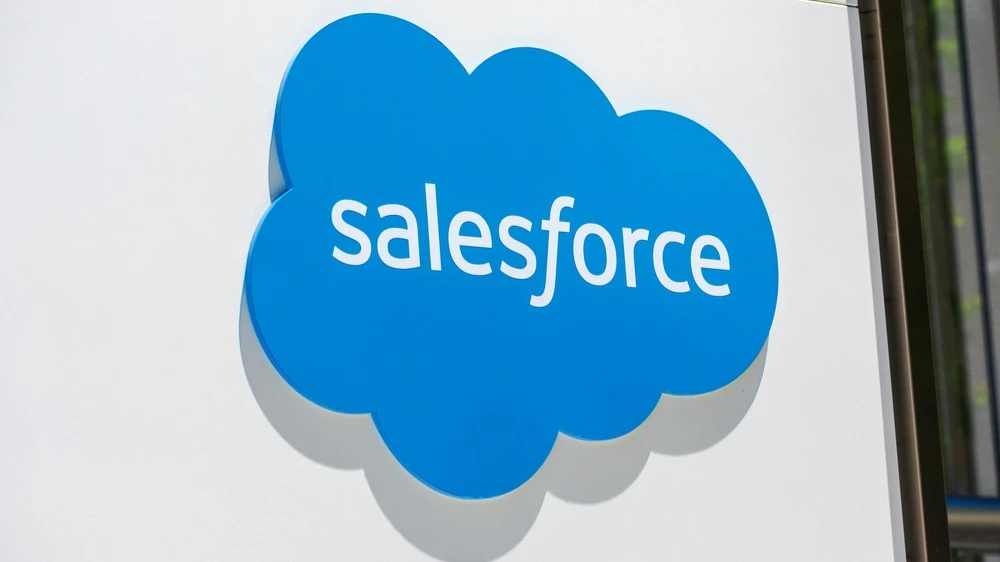Two bearish narratives converge: Salesforce stock collapses after strong reporting
Despite the company's problems with AI adoption, you shouldn't bet against it, says Prairie Operating's Lou Basenese

US-based Salesforce, one of the pillars of the "cloud revolution" of the last two decades, reported strong financial results for the second quarter after the market closed on September 3. But a weak revenue outlook and investor concerns about the company's return on investment in artificial intelligence triggered a collapse in its stock price.
Details
Salesforce's adjusted earnings per share rose nearly 14% year-over-year to $2.91, with a consensus forecast of $2.78. Quarterly revenue rose 10% year-over-year to $10.24 billion, slightly ahead of Wall Street expectations. The company beat forecasts on other key metrics, including orders and operating margin, Barron's said.
Salesforce's full-year forecast was slightly better than expected, but its outlook for the current quarter disappointed: the company expects revenue of $10.24-10.29 billion, with Wall Street expecting the upper end of that range, Reuters citesLSEG data. And although Salesforce says it is focusing on investments in AI, primarily in the smart assistant Agentforce, launched last fall, some investors are getting nervous because it is not yet reflected in the company's financial results, notes The Wall Street Journal.
"There is a general sense of disappointment in the market," wrote Melissa Otto, head of research at S&P Global Visible Alpha. Salesforce shares fell 6% to $242.26 in the New York postmarket. The company has lost 23% of its value since the start of 2025.
"Bear" narratives
Two bearish narratives for Salesforce in 2025 have converged, writes Barron's. The first is a slowdown in sales growth to single-digit percentages. Salesforce's revenue grew at least 24% annually from fiscal years 2006 through 2022, but the pace has been slowing since 2023. This dynamic is typical of most software companies, Barron's states: after a period of rapid growth, their businesses are moving into a mature phase. Salesforce is trying to accelerate the pace by implementing AI agents in its cloud applications. So far, the process has been slow - client companies need time to get to grips with these new and potentially risky tools, the article says.
The second bearish narrative is that investors have begun to doubt the prospects of the cloud software market. They fear that AI could transform this segment in the same way that the cloud services of Salesforce and other beneficiaries of the "cloud revolution" once undermined the position of boxed software, Barron's notes.
What about the stock
The company's shares are down 30% from their December high. The sharp drop has made them relatively cheap. Of the 50 analyst notes issued on Wall Street since Ma, not a single one contains a "sell" recommendation, Barron's emphasizes. Wall Street's average target price of $343 per paper suggests Salesforce's stock is up 34% from its closing price on Sept. 3.
"The gloom that software investors have already built into the price of our stock and a number of other companies - we don't see it confirmed in our data. We don't see it in our customer base," Salesforce's head of investor relations, Ma Spencer, told Barron's.
Investors shouldn't play against Salesforce, says Prairie Operating's executive vice president of market strategy Lou Basenese. "The way to look at it is that right now the approach is 'adapt to AI or die' style, and these are proven innovators that have dealt with volatile market conditions before. I would include Apple in there (in a portfolio of AI stocks - Oninvest). Everyone says Apple doesn't have an AI solution. But guess what? I think Tim Cook will figure it out in time," Bazenese told Yahoo Finance .
This article was AI-translated and verified by a human editor
